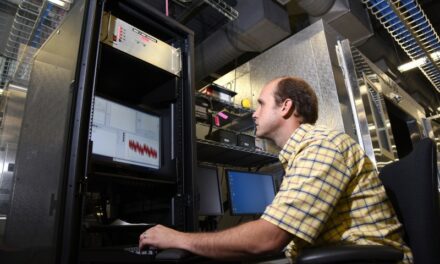Electrical batteries are critical to a variety of applications, but they do come with drawbacks, experts say. For one thing, batteries degrade quickly with operating conditions. And it’s currently difficult to estimate battery health without interrupting the operation of the battery or without going through a lengthy procedure of charge-discharge that requires specialized equipment.
In a study recently published in Nature Machine Intelligence, researchers from the Smart Systems Group at the UK-based Heriot-Watt University, working in conjunction with researchers from the CALCE Battery Group at the University of Maryland, developed a new method to estimate battery health irrespective of operating conditions and battery design or chemistry. They accomplished this by feeding artificial intelligence (AI) algorithms with the raw battery voltage and current operational data.
Darius Roman, the PhD student who designed the AI framework says: “To date, the progress of data-driven models for battery degradation relies on the development of algorithms that carry out inference faster. While researchers often spend a considerable amount of time on model or algorithm development, very few people take the time to understand the engineering context in which the algorithms are applied. By contrast, our work is built from the ground up.”
Roman adds, “We first understood battery degradation through collaborations with the CALCE group at the University of Maryland, where in-house degradation testing of batteries was carried out. We then concentrate on the data, where we engineer features that capture battery degradation and select the most important features. Then, we deploy the AI techniques to estimate battery health.”
In addition, the researchers found that current data-driven models for battery health estimation do not consider model confidence. However, this is often critical for decision making to understand how the AI model came to a certain conclusion and whether the model can be trusted. In their work, the proposed AI model is capable of quantifying uncertainty in its predictions to better support operating decisions.
The developed framework scales up with new chemistries, including the new, upcoming solid-state batteries; battery designs; and operating conditions and has the potential to unlock new strategies of how batteries can and should be used.
Valentin Robu, from the Smart Systems Group says: “Batteries are increasingly critical to a variety of applications, from robotics to renewable energy integration. A key challenge in these domains is having an accurate, high-confidence estimates of battery state of health.”
Robu adds, “Consider for example, a robotic asset operating in a remote environment such as deep subsea monitoring, where assuring the health of the battery deployed on the robot is mission-critical. Similarly, for energy applications, having an accurate estimate of the remaining useful lifetime of the battery is often critical to a project’s economic viability.”





